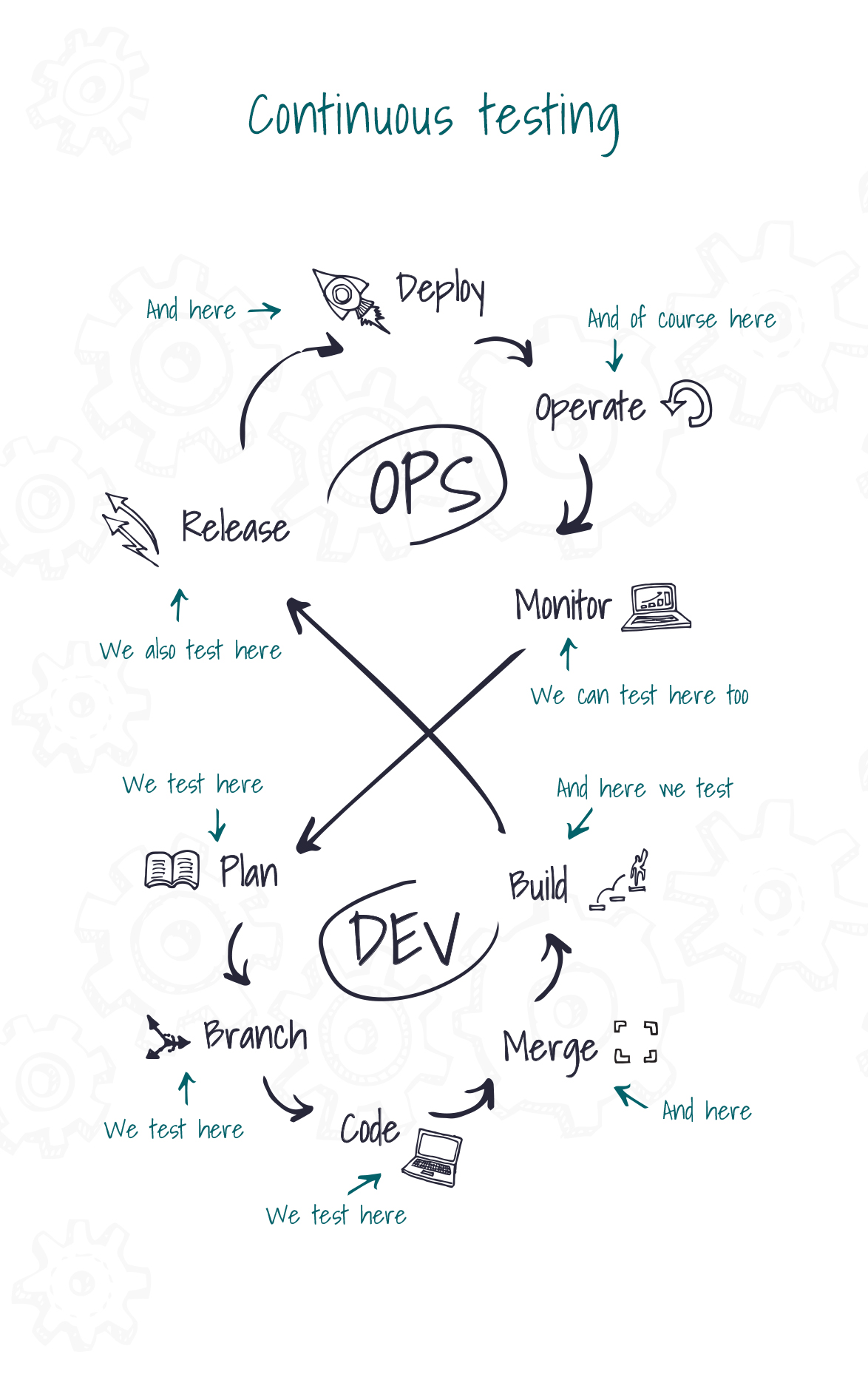Continuous testing



Test automation
Our long-standing experience in developing test strategies for large organisations has allowed us to design our original approach to the performance of testing processes. Being aware of the rapidly changing technologies and the availability of increasingly innovative tools, solutions and methods, we have focused on agility.
That is why we do not provide our own tools or platforms, but build them for each organisation individually on the basis of available open source tools.
Such approach facilitates the provision of solutions which meet individual specific needs of an organisation, at the same time implementing the solution which we already have. In addition it allows a gradual extension of existing platforms along with the changing circumstances.
The main assumption behind the development of frameworks or test platforms is the continuous testing approach.
Continuous testing ensures:
- end-to-end tests for all technologies used in a given process (back-end and front-end), and includes the whole package, from unit tests, components, coverage, to monitoring and tests in production,
- constant assessment of business risk coverage by providing feedback relevant to a given stage of the development process,
- immediate access to information about the extent in which the transfer to the implementation stage in production environment is possible,
- a type of a safety valve which allows us to avoid breakdown,
- the performance of tests across all project stages,
- full integration with CI/CD,
- state-of-the-art and easy maintenance.
The approach we propose is based on an agile approach to building a dedicated platform, at the same time minimising costs in the broadest extent possible.
We use open source tools!
Testcase employees work on test automation projects with real passion. Long-standing experience in the industry and good intuition in the sphere of selecting tools and case scope guarantee a successful performance of test automation.
While running automation processes, as early as in the architecture development stage, we place emphasis on:
- convenient operation and start up,
- the speed of operations,
- maintenance-free performance (no need for supervision),
- an error-handling mechanism allowing easy configuration of error handling,
- self-configuration with the option to introduce user configuration.
The test development method depends on the expected results, the time and the range of automation, including the number of scenarios entailing common elements.
While matching the method of developing automated processes to the needs of our clients, we always pay attention to:
- the time needed for the development of a script,
- the expected life cycle of a script,
- the analysis of future maintenance needs,
- the number of repeated-use elements.
Automation solutions are always a balanced and intentional compromise between the production costs, and the quality and properties of such solutions. The areas in which the application of automated tests yields the most measurable results in the process of delivering, implementing and maintaining applications include:
- the automation of functional and regression testing,
- health checks,
- preparation of test data,
- feeding appropriate data into the environments.
The uniform approach used by Testcase employees allows seamless transformation of a single linear test, or unit test, into an end-to-end test performed on multiple systems. This provides a possibility to develop existing solutions along with the evolving needs.
Automation is an indispensable element of tests. Automated scripts are perfect for repetitive operations, including test data generation - which contributes to the reduced need for their manual performance.


